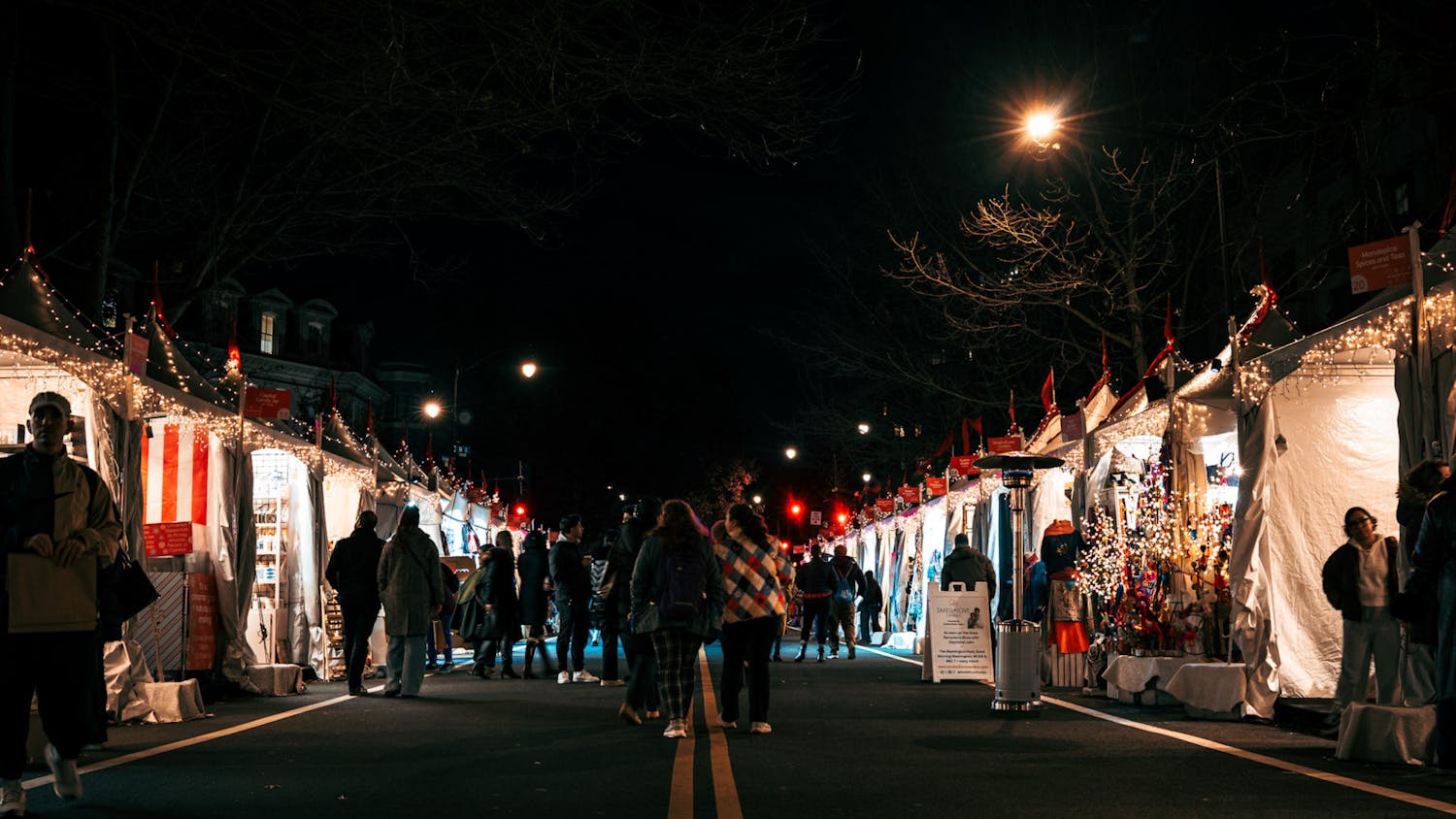AU’s Chamber Orchestra performed “A Little Night Music from Israel and America," a reflection of conductor Yaniv Dinur’s experience as both an Israeli and as an American, on Nov. 20.
The program took place in the Katzen Arts Center’s three-story museum area, and the orchestra performed a collection of pieces from both cultures.
The program featured two Israeli pieces, “Concertino for Oud and Piano” by Menachem Wiesenberg and “Hebrew Songs” by Menachem Nebenhaus. Both of these pieces were written by two of Dinur’s former teachers. The American pieces were “High Windows by Christopher Cerrone," “The Unanswered Question” by Charles Ives and “Oblivion” and “Libertango” by Astor Piazzolla.
The orchestra collaborated with the Center for Israel Studies to put on this program.
“It was Israeli in that it explored Professor Dinur’s particular identity as an Israeli living in the United States, but the themes of what it’s like to be a tourist in a foreign culture are universal,” Laura Cutler, the managing director of the Center for Israel Studies, said. “Culture provides a wonderful lens to understanding issues of identity.”
The program began with “High Windows,” composed by Pulitzer Prize nominee Christopher Cerrone. The orchestra also performed this piece earlier in the year.
The second piece in the program was “Concertino for Oud and Piano,” composed by Menachem Wiesenberg and featuring Mary Voutsas on the piano and Brian Prunka on the oud, a traditional Arab instrument. The piece begins with a back and forth between the oud and the piano, and the string orchestra joined in shortly afterwards.
“One of the challenges with this piece is that it incorporates two things: written music and improvisation,” Dinur said. “Oud players are used to improvising most of their music, while classical pianists are used to written music.”
The third piece in the program was “The Unanswered Question” by composer Charles Ives. The piece is written for three separate groups- the trumpets, woodwinds and the strings.
“This space gives us the ability to spread the three groups around, which is why we chose it,” Dinur said.
Dinur played the accordion in the fourth piece “Oblivion," which was composed by Argentinian Astor Piazzolla.
“Playing with the orchestra was an awesome experience,” Dinur said. “When I conduct, I lead the players through the piece, but when I was playing with them, they were not just my students anymore in that piece, but also my colleagues, and that was great.”
The fifth piece was “Libertango”, which was also composed by Piazzolla. These two pieces are South American, and Dr. Dinur explains that he wanted to expand the definition of the word “America” with the performance.
The final piece was “Hebrew Songs” by Menachem Nebenhaus, which was a collection of Israeli songs. The songs were “Shadmati” by Yedidia Admon, “Hora Nirkoda” by Mark Lavri, “Hora Mamtera” by Moshe Vilenski, and “Al Gvaot Sheh Abrek” by Mordechai Zeira.
“Spending two years and a half with the AU orchestra is more than reaching a high level of performance and the ability to play different repertoire well; we’ve come to a situation where we think the same way,” Dinur said. “I am aware that I am a part of their journey, but they should also know that they are an important part of mine, and that’s why I told them that in the concert and also afterwards.”
As for future projects, Dinur said his goal is to create interesting and unusual concerts in unusual places.
“I’m imagining a concert that starts at midnight on the lawn of the main quad, with the audience sitting close and around the orchestra and only candles for lighting,” Dinur said. “It will happen.”




